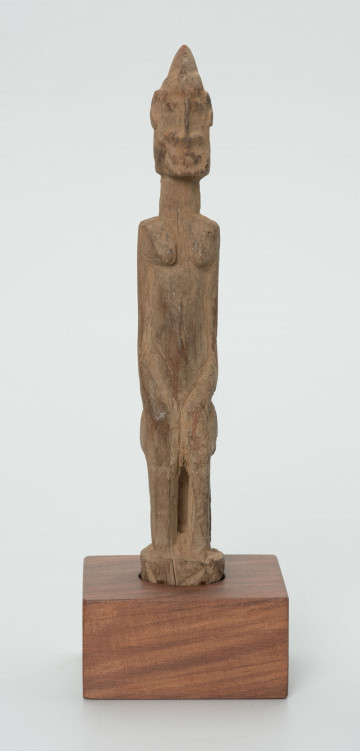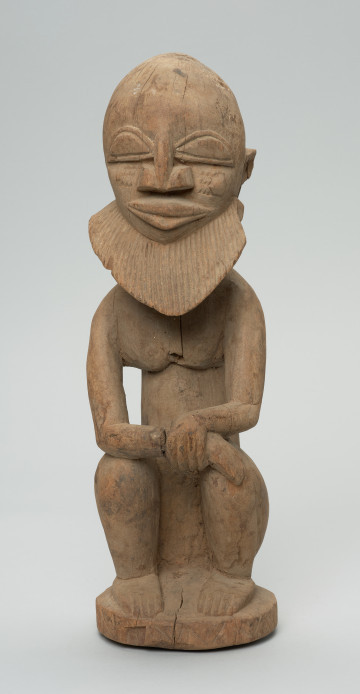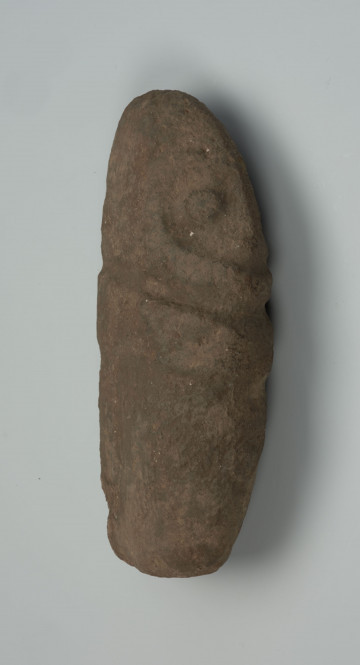
Figurine - ancestor
między 1901 — 1950
National Museum in Szczecin
Part of the collection: Collection of Dogonian art
There is a strict gender division of labour in the Dogon. The men do all the heavy work, but the women always help them, whether in the fields, building the house or the granary. In addition, women have the daily tasks of running the household and caring for the children. Their work is time-consuming and difficult. They consider the daily fetching of water in large containers (about 20-25 litres) to be particularly hard. Wells or other water tanks are often several kilometres away from the villages. Women get up early in the morning and set out to fetch water while it is still dark. The Dogon woman manages her farm alone. In the case of polygynous marriages, the first, oldest wife always has the upper hand in the household; the others must submit to her. The woman has a high position in the household, the husband cannot force her to do anything. In the case of disagreements between spouses, the wife may even refuse her husband a meal. The man usually asks the neighbours for help in such a situation. A woman's position increases with the number of children. In addition to housework, women are involved in craft activities, especially during the dry season. The Dogon women, for example, produce cotton thread, make clay pots and dye cloth. They can sell the products they have made. They usually sell them at markets held in Dogon country every five days (Dogon week), offering farm produce from their own fields (dried onion balls, vegetables, spices) or processed food (fried doughnuts, fish, soups, millet beer). The money raised from sales constitutes the woman's private property, which she customarily keeps in her own granary. Her husband does not have any rights to it, so in the event of her death her children inherit.
Ewa Prądzyńska
Author / creator
Dimensions
cały obiekt: height: 31,5 cm, width: 8,5 cm
Object type
figure
Creation time / dating
Creation / finding place
Identification number
Location / status

między 1901 — 1950
National Museum in Szczecin

między 1951 — 2000
National Museum in Szczecin

między 1951 — 2000
National Museum in Szczecin
DISCOVER this TOPIC
National Museum in Lublin
DISCOVER this PATH
Educational path